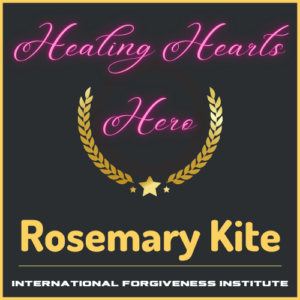Tagged: “hurtful event”
If we all use psychological defenses such as denial and repression, how do we ever come to realize who hurt us when that hurt occurred many years ago when we were children?
As people see that they are carrying deep hurt at present, this can be a motivation for examining who did the hurting in their lives. One exercise that I recommend in the book, The Forgiving Life, is what I call the Forgiveness Landscape. In this exercise, people slowly start to make a list of those who have actually hurt them, starting from early childhood and progressing up to the present time. As people do this exercise, they can begin to see areas of hurt that are long forgotten (but still subconsciously can be affecting a person’s well-being at present). For example, as people reflect on their past life, they might recall being bullied at age 11. This then breaks the repression that might have been present with regard to the bullying. This breaking of the psychological defenses can occur particularly when a person knows that forgiveness is an effective response to the past injustices and to the current hurts still present from those past offenses.
In an intimate relationship, how can one rebuild trust after the other shattered that trust?
Once you have walked the path of forgiving, I recommend an attempt at reconciliation. One can slowly rebuild trust with what I call the 3 R’s of remorse, repentance, and recompense. Remorse is an inner sorrow. Is the other genuinely sorry for what happened? Repentance is words that express remorse. Has the person genuinely apologized, truly meaning it (and you usually can tell a phony repentance from a sincere one by seeing the other’s emotions). Recompense is trying to make up for what happened, within reason. Has the other tried to change so that the injustices now are minimized or even eliminated? It can take time to see that recompense is occurring on a consistent level, but as you see this more stable change, trust can begin to emerge.
Healing Hearts Hero Award Presented to Rosemary Kite
Rosemary Kite, founder and president of Forgive4Peace (2008-2018), has been selected to receive the International Forgiveness Institute’s (IFI’s) Healing Hearts Hero award. The award recognizes individuals who have developed collaborative partnerships with the IFI and its co-founder Dr. Robert Enright in order to promote the virtue of forgiveness on an international basis.
Formerly called Possumus International, the organization was created in 2008 with what Rosemary calls “the desire to overcome evil through a superabundance of good. And what better good could be provided to the world than instruction on how to exercise mercy towards one another, bridging the way to peace by teaching the importance and value of forgiveness at home, at school, and at work.”
Shortly after its founding, Possumus International (Latin for the words “we can”) became a 2009 Charter Member of the National September 11th Memorial and Museum. Then Rosemary and her colleagues initiated an annual “Family, Friends and Forgiveness” essay competition for girls 10-14 years old with the winners awarded camp scholarships.
In 2013, after learning about and wanting to be a part of the empowering work of the IFI, Rosemary established a “Families and Forgiveness” program that incorporated lessons from Dr. Enright’s A Family Guide to Forgiveness Education into private home settings.
Since then, Rosemary and Dr. Enright have collaborated on school Forgiveness Education projects around the world including those in: 1) Inner City Milwaukee, Wisconsin; 2) Belfast, Northern Ireland; 3) Liberia, West Africa; and, 4) the West Bank, Israel.
Forgive4Peace provided financial support for two IFI-hosted events—the Jerusalem Conference on Forgiveness (2017) and the Rome Conference on Forgiveness (2018). In July, Rosemary was an active participant at the International Educational Conference on Agape Love and Forgiveness in Madison, WI, that was hosted by the IFI and attended by 160 educators from the US, Northern Ireland, Taiwan, Israel, Spain, and the Philippines.
 “Rosemary is a fabulous ambassador for forgiveness who has continually impressed me from the first day I met her,” according to Dr. Enright. “She is constantly trying to raise awareness of the importance and value of forgiveness in one’s everyday life. She definitely knows how to heal hearts through forgiveness.”
“Rosemary is a fabulous ambassador for forgiveness who has continually impressed me from the first day I met her,” according to Dr. Enright. “She is constantly trying to raise awareness of the importance and value of forgiveness in one’s everyday life. She definitely knows how to heal hearts through forgiveness.”
In her 2019 guest blog for this website, The Art and Science of Forgiveness, Rosemary wrote:
“The art and science of forgiveness suggests that the best medicine we can possibly take to improve our physical, psychological, social, and spiritual health, is forgiveness. Forgiveness is like the pill that offers the deepest healing of the wounds that fester in the human heart.”
Elsewhere she says: “As everyone who has ever had to forgive knows, every act of forgiveness begins with an injustice. We have wounded hearts all around us, everywhere we go. Why not try to be a healing heart to those we come across in our paths daily?”
Rosemary, who has a BA from California State University in San Francisco, has devoted her professional career to educational endeavors in the non-profit sector, primarily through the education of women and girls.
How do I know, with some degree of confidence, that I am ready to reconcile with the other person?
Reconciliation is different from forgiveness. When we reconcile, this is a process of two or more people coming together again in mutual trust. Reconciliation is conditional on the other person’s willingness to change, if he or she was the one who acted unfairly. Forgiveness, in contrast, can be offered unconditionally to the other as a form of respect, understanding, compassion, and even love, even if there is no reconciliation. So, you can forgive without reconciling.
With all of this as background, here are four questions which might help you decide if you are ready to reconcile (and I am presuming that the other is the one who has hurt you):
1) Has the other shown an inner sorrow about what he or she did? We call this remorse;
2) Has the person verbally expressed this sorrow to you. We call this repentance;
3) Has the person made amends for what happened (and we have to ask if he or she has done so within reason because sometimes we cannot make full amends. For example, if someone stole $1,000 from you but truly cannot repay it all, then you cannot expect that he or she can make amends in any perfect way). We call this recompense;
4) If the person has shown what I call the “three R’s” of remorse, repentance, and recompense, then do you have even a little trust in your heart toward the person? If so, then perhaps you can begin a slow reconciliation, taking small steps in rebuilding the relationship. Your answer to these four questions may help you with your question: How do I know that I now am ready to reconcile?
How can I forgive a God I no longer believe in? I have a lot of anger toward this non-existent deity.
It seems to me that you do, in fact, believe in God and this is hidden from you right now. Why do I say this? You cannot have anger toward a person who does not exist. How can a person who does not exist be unfair to you and therefore hurt you? It is similar with God. How can you have “a lot of anger” for a deity when you claim the deity does not exist? Your emotions suggest to me that you do see God as real. If this is true, then you need to ask questions such as this: Is God perfect, all holy? If so, then God cannot be unjust to you. Perhaps it is people who have hurt you and you are passing this now to God (“God should have prevented this,” as one example). If this is your mode of thinking, then I recommend a deeper dive into theology so that you can address the issue of why God allows suffering in this world; why God allows others to be unfair to you. In other words, it may be the rigors of this world and hurtful people at whom you are angry.




